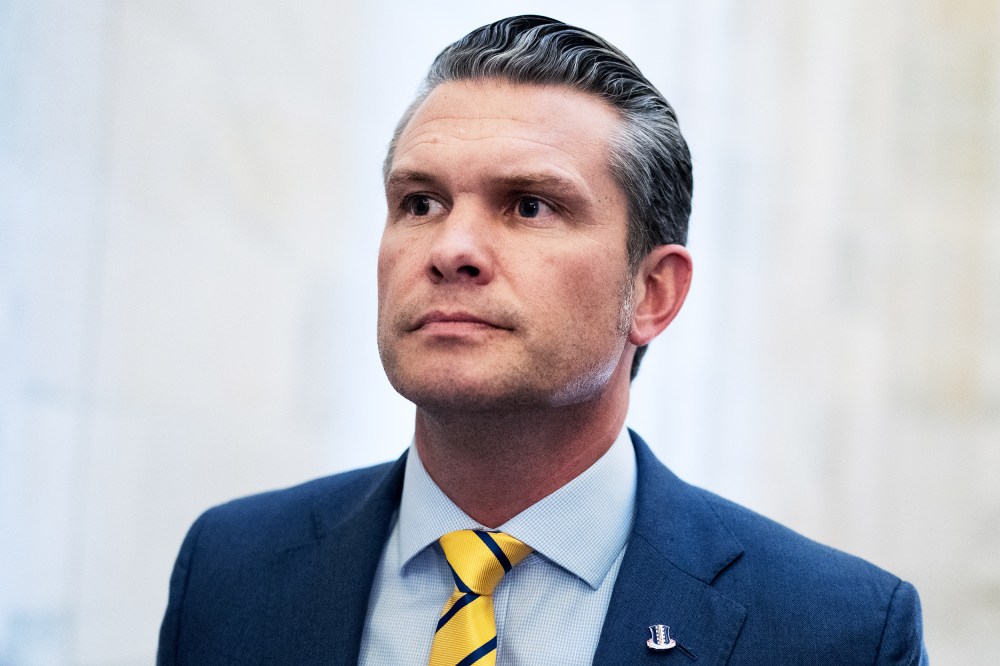Much of the opposition to former Fox News host Pete Hegseth, whom President-elect Donald Trump has nominated to serve as defense secretary, has centered on allegations that he has abused women and alcohol. Hegseth has denied mistreating women, and he denied a woman’s allegation that he sexually assaulted her in a California hotel room in 2017 and he was never charged in the case. He reached a confidential settlement with his accuser last year. Though he has denied reports that he had a drinking problem that his co-workers noticed, he has promised that he is “not going to have a drink at all” if he is confirmed as defense secretary.
Hegseth should not be confirmed as defense secretary even if every allegation that he harmed women and abused alcohol were proved false.
Hegseth should not be confirmed as defense secretary. He would be a poor choice even if every allegation that he harmed women and abused alcohol were proved false. The Senate Armed Services Committee will consider his nomination Tuesday, and if the senators who will exercise their “advise and consent” authority think deeply about their responsibilities, they will realize he is far from qualified for this role — and that putting him in charge could pose a threat to our national security.
Even a cursory review of Hegseth’s background reveals he has little knowledge or experience of complex national security issues. Previous secretaries led large, complex organizations, held high-level civilian positions in the Pentagon or strategic military commands, or were politicians — House members or senators with committee assignments that dealt with national security.
Besides his role as a television host, Trump’s nominee has led only two relatively small conservative nonprofit organizations: Concerned Veterans of America and the Veterans for Freedom. Both have been characterized in various reports as suffering from mismanagement, financial irresponsibility and possible self-dealing. Hegseth says that the stories about how he managed those organizations are not true and that they were made up to tank his nomination.
The secretary of defense, the principal defense policy adviser to the president and a key member of the National Security Council, oversees 2 million uniformed service members, more than 700,000 civilian employees, an annual budget of $850 billion and major intelligence-gathering efforts. On any given day the Army has about 170,000 troops deployed, the Navy has 100 ships at sea, and the Air Force will conduct thousands of sorties. The defense secretary is responsible for all of that.
Some senators have lauded Hegseth’s service as a lieutenant and platoon leader in Iraq and Afghanistan, but his combat experience as a junior officer — while laudable — has little to do with serving as defense secretary.

The Pentagon chief must also make critical decisions about military strategy, personnel and budgetary issues that require long-term analysis of defense investments that will affect America’s current and future military force for decades. Consider the fact that the Air Force’s ongoing program to deploy the B-21 bomber began in 2011, its first flight was in 2023, and it still has not entered operational service.
While the secretary’s role has increasingly focused on military preparedness and operations, it also includes a large diplomatic role. The defense secretary has primary responsibility for our nation’s relations with foreign defense ministries. They work to establish and maintain alliances, secure support for American bases abroad, coordinate military aid, oversee weapons sales and more. Defense Secretary Lloyd Austin, for example, made over a dozen trips to Asia to strengthen the U.S. relationships with South Korea, Japan and Australia. He also chaired the Ukraine Defense Contact Group, whose membership grew from only NATO countries to over 50 states.
Some have lauded Hegseth’s service as a lieutenant and platoon leader, but his combat experience — while laudable — has little to do with serving as defense secretary.
The president-elect appears unconcerned about Hegseth’s background or lack of experience. Hegseth came to Trump’s attention when he publicly advocated for the pardons of three service members who were convicted of war crimes. One was Army Lt. Clint Lorance, who ordered his platoon to fire on three unarmed Afghans and falsified reports about their deaths. Members of Lorance’s platoon reported the incident and testified against him at his court-martial. And yet Trump, ignoring opposition from then- Defense Secretary Mark Esper, the Joint Chiefs of Staff and numerous retired senior military officers, endorsed Hegseth’s recommendation.
Trump is also attracted to Hegseth as a “culture warrior” who believes the so-called woke military is the nation’s most pressing national security problem.
Despite the above list of responsibilities a defense secretary has, Trump is looking for two things from his pick. First, he wants a defense secretary who demonstrates loyalty — if not fealty. He will have to have an unquestioning defense secretary if he wants to use the military to round up and deport millions of immigrants or conduct military operations against Panama or Greenland.












